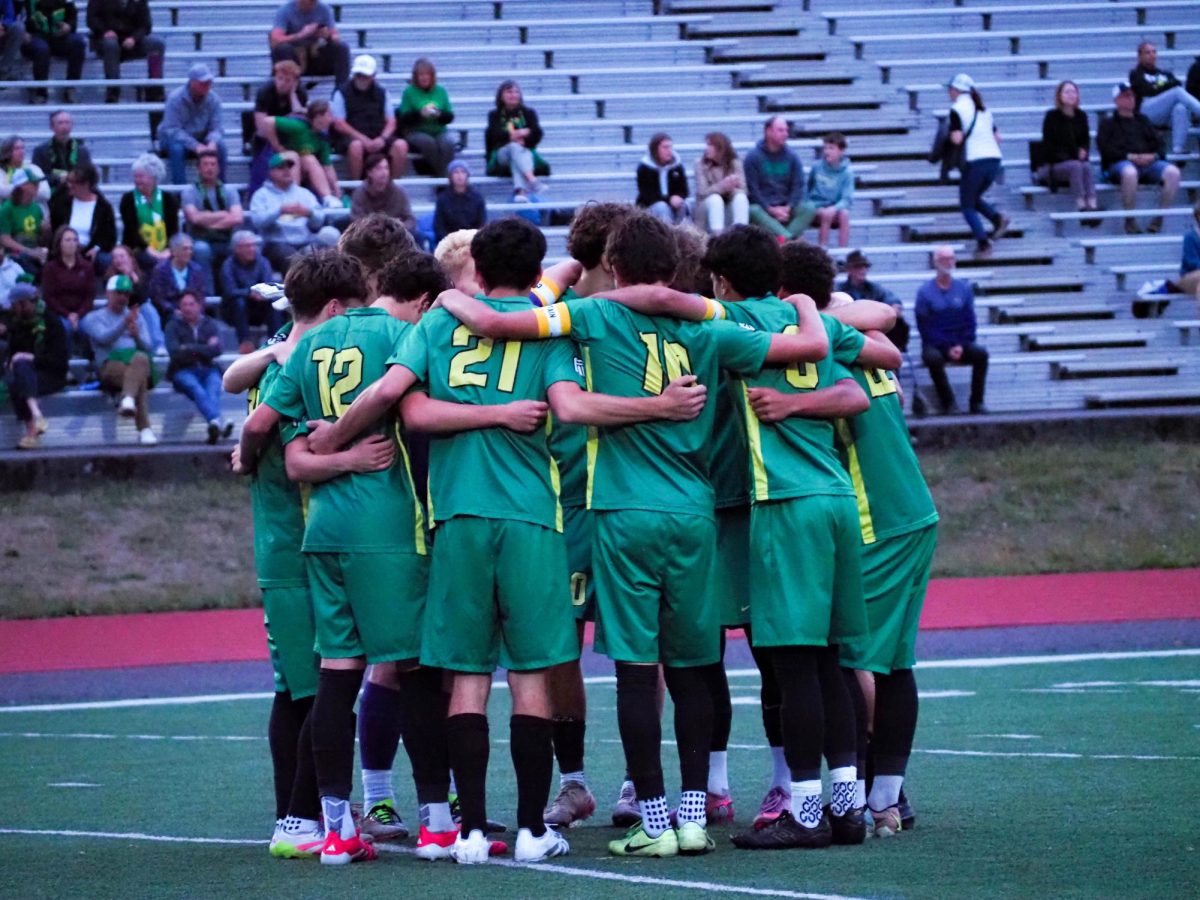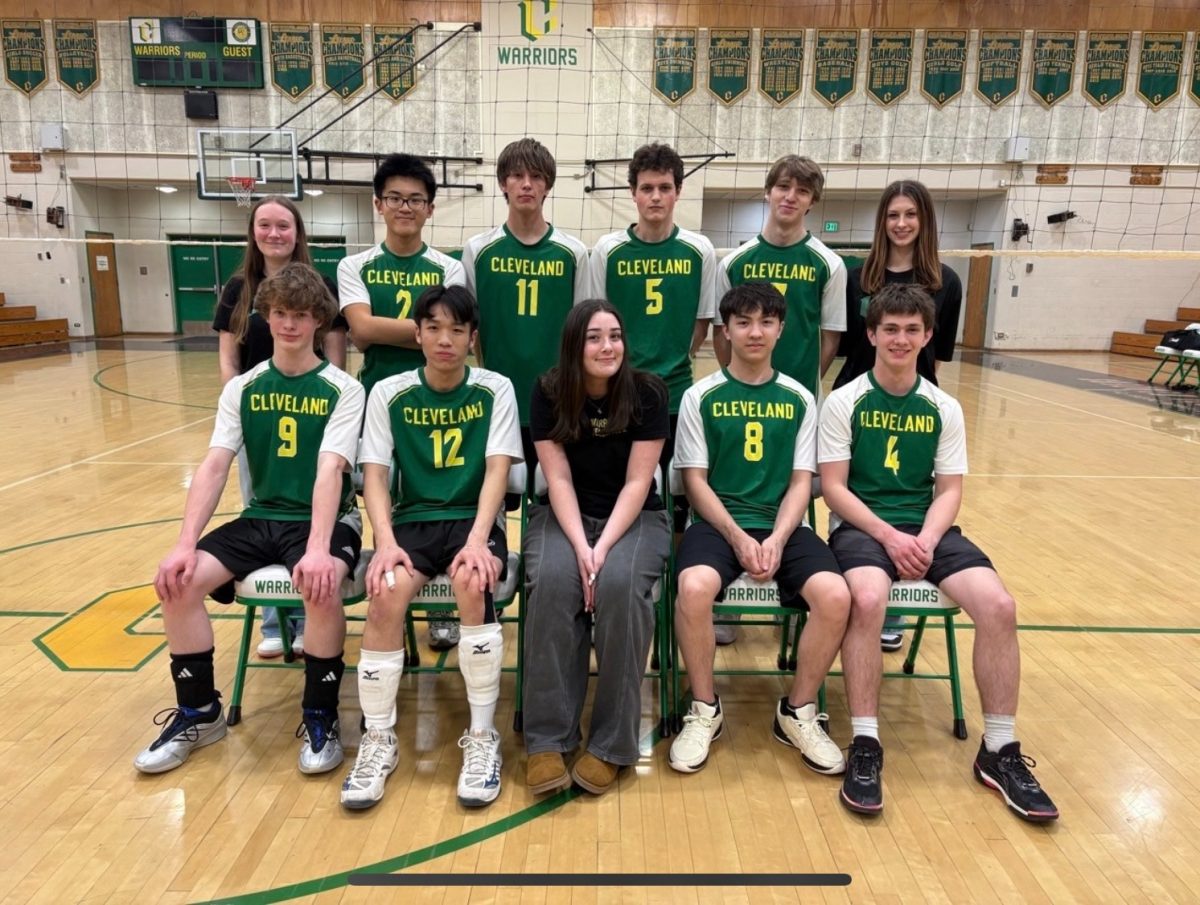S.A.R: Saving Lives in the Path of the Blaze
October 12, 2017
The Willamette Valley suffered eerie and unsettling conditions during the week of Sept. 2. A blood red sun sat above Portland, while ash floated down from a dreary gray sky like toxic snow. This almost apocalyptic scene was a direct result of the Eagle Creek Fire, burning at the gateway to the city and torching Oregon’s treasured Columbia River Gorge. But while most Portlanders waited anxiously for any news of the fire, the Multnomah County Search and Rescue team (MCSOSAR or SAR) was busy in the path of the burn, evacuating locals and witnessing the destruction first-hand.
Among the team were 18 Cleveland students, each assigned with the duty of keeping the residents of the gorge safe. For over a week, they were stationed at various towns throughout the gorge, battling hazardous breathing conditions, scorching heat, and often running on just a few hours of sleep.
According to members of the Search and Rescue team, Monday night was when the fire became truly “real,” and a serious threat to residents of the gorge. After receiving a call at 5:40 p.m. that evening, they traveled to the town of Corbett to inform residents in the area that they needed to leave immediately. “We were going home to home and letting people know it was time to evacuate. We would knock on their doors and give them a fire update, telling them how urgent it was for them to leave their houses,” said senior Lainie Neher, who was there Monday.
After working through the night — from 5:40 p.m. to 5 a.m. — they were allotted two hours of sleep before hitting the streets once more. As the rest of the week unfolded, many members were given permission to return home; however, some stayed behind, taking continuous shifts until Monday, Sept. 11.
Cleveland junior Camille Christensen, one of four SAR team leaders, was on the “graveyard shift” during this time, on standby for any new evacuation alerts. She worked from 6 p.m. to 6 a.m., clocking in at roughly 60 hours by the end of the week. Christensen said, “It was definitely tough. It was hard, but it had to be done — These are people’s lives, and they’re at risk.”
This setting of potential life or death created an air of panic throughout the towns they were evacuating, often yielding desperate reactions from residents. That panic was displayed by many people’s attempts to save their livestock upon hearing the troubling news. One woman piled several chickens into a pillowcase and tried to carry them to safety with her. Many left the pens of their animals open, hoping they would be able to escape and live rather than stay and burn. Christensen explained, “They were mostly just scared. Many of them didn’t know what to do, or how to prepare.”
According to junior Bennett Gaeta, leader of Team Charlie, some flat-out refused to leave their homes. Gaeta said, “I got people who said, ‘No, I’m not willing to leave my house,’… basically saying if my house is going to burn, then I’m going to burn too. It hits you pretty hard, seeing something that they’re willing to give up their life for — You never really think about what would happen if you had to leave your house someday.”
Having to tell people their homes, and lives, lay directly in the path of a fire would be incredibly trying. Many of the members agreed that at some point, the interactions became impersonal, almost like they were on auto-pilot. “It’s hard to go up to someone and tell them [their] house might burn down, but you also have to stop taking care of people at a certain point,” said senior Will Heins. This was the simplest way to set aside the emotions that came with seeing a beloved piece of their state go up in flames.
As the fire steadily became more contained, the Multnomah County Search and Rescue team finally returned to Portland on Monday, Sept. 11. According to Neher, the following days were as tough as any. “I came back to school, and all I could think about was the fire. It was really hard to focus on my schoolwork, cross country practice — all the things I do in everyday life. I feel very connected to the Columbia River Gorge; I’ve spent a lot of time there, and it’s someplace I’ve learned to love. It’s heartbreaking to watch it burn down.”
In spite of the demanding, and in this case — grim — work, the Search and Rescue team is a close knit and supportive community. It’s rare to find a group of people who can goof off and have fun, then jump into action at one simple call. The program is also a great way to practice leadership skills, undergo intensive medical training, and learn more about Oregon’s outdoors through public service.
“I joined because I really wanted to gain more experience and knowledge about survival skills. The idea of volunteering to go behind the scenes of rescue was really intriguing to me,” said junior Zoё Kane. For those interested in joining, go to Providence Portland on the second and third Wednesday of October for an informational meeting from 7 to 9 p.m. Remember that being a part of Search and Rescue is so much more than a resume booster — it’s a once-in-a-lifetime opportunity to give back to your community.
As our signature rainy weather sets in, the weight on Portland’s heart seems to be lifting at last. Thanks to fall’s damp arrival, the Eagle Creek Fire is currently 46 percent contained, allowing many of those displaced by the fire to return home. It’s safe to say the bulk of the danger is in the past now, so with higher spirits, the Search and Rescue members who helped them escape can finally breathe easy.















